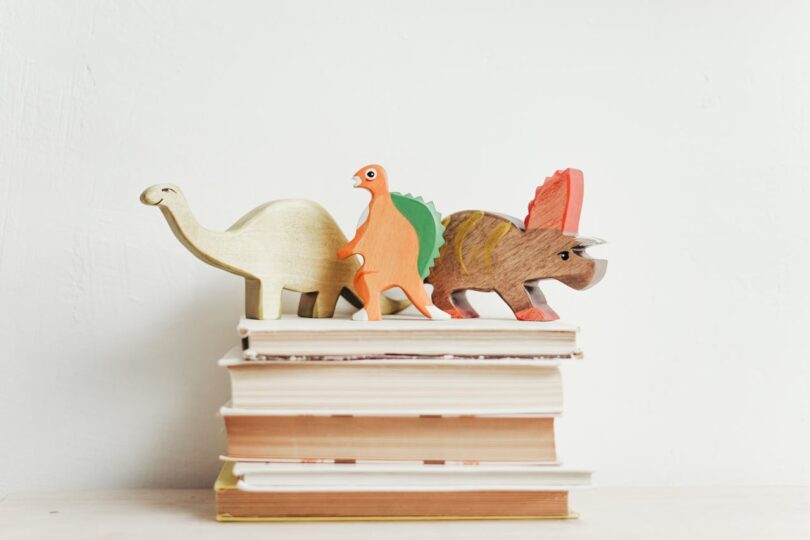You Won’t Believe These Crazy Facts Are Actually True!
The world is a bizarre, fascinating place full of crazy facts that sound like they were made up in a fantasy novel. From the animal kingdom to space, history to human biology—reality is often stranger than fiction. Some facts are so strange, they leave you wondering: How is this even possible? Prepare to have your mind blown by these unbelievable (but 100% true) facts!
1. Bananas Are Berries, But Strawberries Aren’t
Yes, you read that right. According to botanical definitions, bananas qualify as berries because they come from a single ovary, have a soft outer skin, and contain multiple seeds. Meanwhile, strawberries don’t meet the criteria because their seeds are on the outside and they come from a flower with more than one ovary. So next time you make a fruit salad, remember: bananas are more “berry” than berries!
2. Octopuses Have Three Hearts and Blue Blood
Octopuses are some of the weirdest and most intelligent creatures in the ocean. But did you know they have three hearts? Two pump blood to the gills, and one pumps it to the rest of the body. And yes, their blood is blue, not red, because it contains copper-based hemocyanin instead of iron-based hemoglobin. Nature really pulled out all the stops on these guys.
3. There Are More Stars in the Universe Than Grains of Sand on Earth
The number of stars in the observable universe is estimated to be around 1 septillion (that’s 1 followed by 24 zeros). Compare that to roughly 7.5 x 10^18 grains of sand on all the Earth’s beaches and deserts combined. It’s a humbling thought: the night sky is far more packed than even the busiest beach.
4. A Day on Venus Is Longer Than a Year on Venus
Venus rotates incredibly slowly—so slowly, in fact, that one full rotation (a day) takes about 243 Earth days. But it takes only 225 Earth days to orbit the Sun (a year). That means if you lived on Venus, a day would be longer than a year!
5. Wombat Poop Is Cube-Shaped
This one sounds made up, but it’s scientifically accurate. Wombats, the adorable marsupials native to Australia, produce cube-shaped feces. Scientists believe this helps prevent the poop from rolling away, as wombats use it to mark territory. Nature’s geometry lesson, straight from the outback.
6. Your Stomach Gets a New Lining Every Few Days
The human body is a master of maintenance. Your stomach is constantly digesting food with powerful acids—yet it doesn’t digest itself. That’s because the stomach lining replaces itself every 3 to 4 days, ensuring it stays intact and protected.
7. Sloths Can Hold Their Breath Longer Than Dolphins
Dolphins can hold their breath for around 10 minutes underwater. Sloths, surprisingly, can slow their heart rate and hold their breath for up to 40 minutes. Why? Because sloths are all about energy conservation, and this includes minimizing movement—even their breathing!
8. You Can Smell Rain
Ever noticed that pleasant, earthy smell when it starts to rain? That’s petrichor, a scent produced when rain hits dry soil. It comes from an oil released by plants during dry periods, and a compound called geosmin created by soil-dwelling bacteria. Our noses are super sensitive to geosmin, so even a tiny amount can be detected.
9. Hot Water Freezes Faster Than Cold Water
Known as the Mpemba effect, this strange phenomenon defies basic logic. Under certain conditions, hot water can freeze faster than cold water. The reasons aren’t fully understood, but factors like evaporation, convection, and the behavior of hydrogen bonds may play a role.
10. A Cloud Can Weigh Over a Million Pounds
Clouds look light and fluffy, but they are massive. A single cumulus cloud can weigh more than 1 million pounds. That’s because it contains millions of water droplets suspended in the air. Thankfully, that weight is distributed over a large area, so you don’t feel it dropping all at once!
Read More: This Country Banned Time Travel in Movies – Here’s Why
11. There’s a Species of Jellyfish That Can Live Forever
The Turritopsis dohrnii jellyfish has an extraordinary ability—it can reverse its aging process. When facing stress or injury, it reverts its cells to an earlier stage of development, effectively starting its life cycle over again. While not invincible, this jellyfish is biologically immortal.
12. The Eiffel Tower Can Grow Taller in the Summer
Metal expands when heated. The Eiffel Tower, made mostly of iron, can grow more than 6 inches taller during hot summer days. When the temperature drops, it shrinks back down. It’s like Paris’s most famous landmark is breathing with the seasons.
13. Honey Never Spoils
Archaeologists have found pots of honey in ancient Egyptian tombs that are over 3,000 years old—and still perfectly edible. Honey’s low moisture content and natural acidity make it inhospitable for bacteria and mold. Properly sealed, it’s basically the food version of a time capsule.
14. Human Bones Are Stronger Than Concrete
Bone is incredibly strong and lightweight. Ounce for ounce, human bone is about five times stronger than concrete. The femur (thigh bone) can support up to 30 times a person’s body weight. Makes you think twice about calling us “fragile”!
15. You Were Once the Youngest Person on Earth
It’s true—at the moment you were born, you were the youngest human being alive on the entire planet. Even if it lasted only a second or two, you held that strange, ephemeral record. A brief but entirely factual title.
16. Sea Cucumbers Can Eject Their Own Organs
When threatened, some species of sea cucumbers will eject their internal organs out of their anus to distract predators. They later regenerate the lost organs. It’s a dramatic defense mechanism, and one of the more disgusting ways nature has invented to stay alive.
17. A Shrimp Can Punch Harder Than a Bullet
The mantis shrimp has one of the most powerful punches in the animal kingdom. Its clubs can strike at 50 mph, delivering a force of 1,500 newtons—enough to shatter glass. The strike is so fast, it generates heat and light underwater, creating cavitation bubbles that add a second punch!
18. You Shed Over 30,000 Skin Cells Every Minute
Your skin is constantly renewing itself. In fact, you lose approximately 30,000 to 40,000 dead skin cells per minute. That adds up to about 9 pounds of skin per year. Most of the dust in your home? Yep—dead skin.
19. There’s Enough DNA in Your Body to Stretch from the Earth to the Sun—and Back
Every human cell contains around 6 feet of DNA. Multiply that by the 37.2 trillion cells in your body, and your total DNA would stretch approximately 93 billion miles—enough to reach the Sun and back more than 300 times.
20. Butterflies Can Taste With Their Feet
Butterflies have taste sensors on their feet that help them find suitable plants to lay their eggs. When they land on a plant, they “taste” it with their feet to determine if their caterpillars will have something good to munch on after hatching. Talk about fancy footwork!21. A Day on Earth Used to Be Only 18 Hours Long
About 1.4 billion years ago, Earth rotated much faster than it does today. As a result, a day was only 18 hours long. The Moon’s gravitational pull has been slowly slowing Earth’s rotation over time, leading to the 24-hour day we now enjoy.
22. Cows Have Best Friends—and Get Stressed When Apart
Studies have shown that cows form strong social bonds and have “best friends.” When separated from their chosen companion, cows show signs of stress like increased heart rate and vocalization. Who knew farm animals were so emotionally complex?23. Space Smells Like Burnt Steak
Astronauts who have returned from spacewalks report that their suits and gear smell like burnt steak or welding fumes. This odd odor is believed to come from high-energy particles that adhere to equipment and oxidize upon returning to the spacecraft.
24. Your Brain Uses as Much Energy as a 10-Watt Light Bulb
Even when you’re resting, your brain is working hard—processing thoughts, memories, emotions, and body functions. It uses about 20% of your body’s energy, equivalent to the power of a 10-watt light bulb. That’s some serious wattage for a squishy organ.
25. The Shortest War in History Lasted Just 38 Minutes
The Anglo-Zanzibar War of 1896 is the shortest war ever recorded. It lasted only 38 minutes. The British Empire swiftly defeated the Sultan of Zanzibar after he refused to step down. That’s barely enough time to make a cup of tea.
Conclusion:
These jaw-dropping, eyebrow-raising Crazy facts remind us how strange and wonderful our world is. From animals that defy logic to cosmic wonders that stretch the imagination, reality is packed with surprises. The next time something sounds too weird to be true—double-check. You just might find it’s a crazy fact hiding in plain sight.



